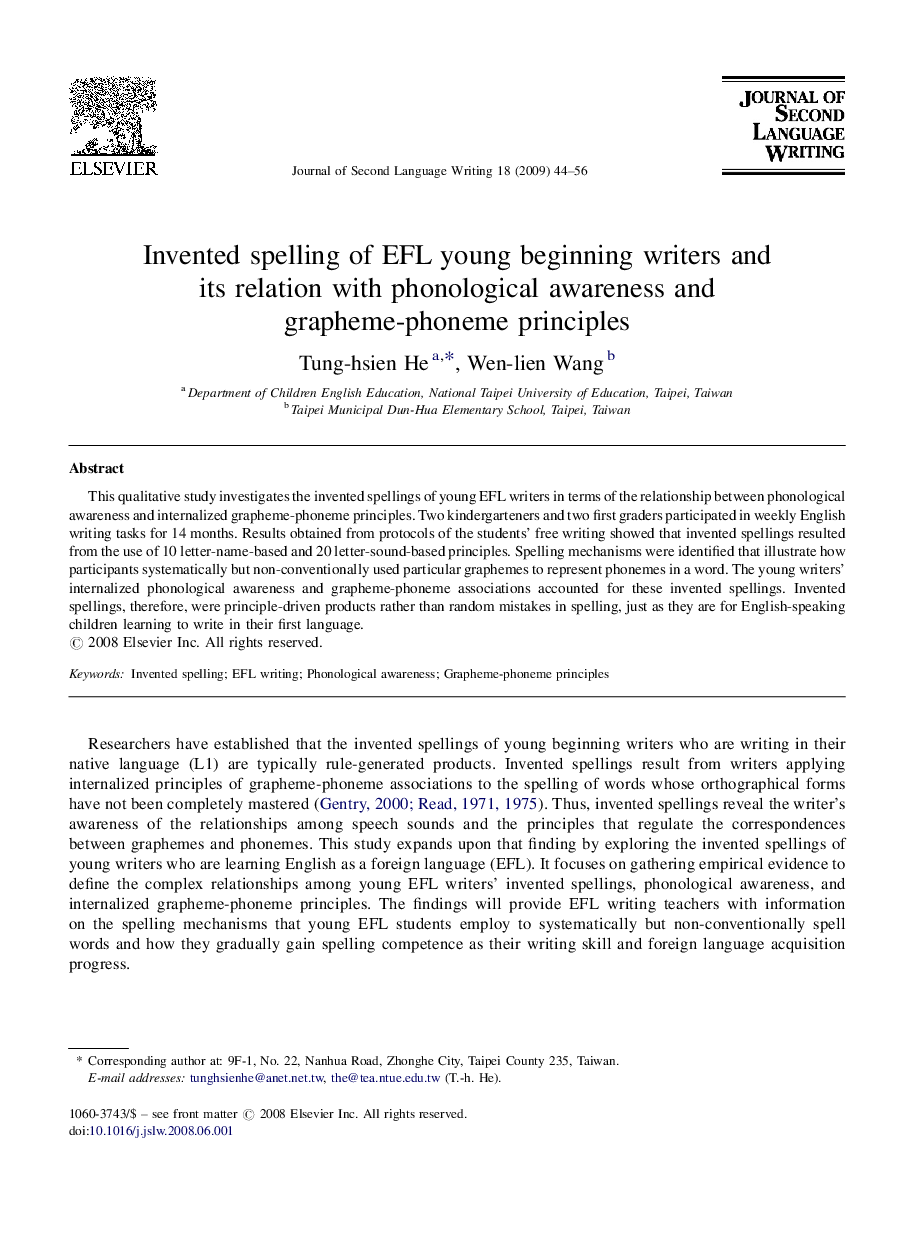| Article ID | Journal | Published Year | Pages | File Type |
|---|---|---|---|---|
| 364225 | Journal of Second Language Writing | 2009 | 13 Pages |
This qualitative study investigates the invented spellings of young EFL writers in terms of the relationship between phonological awareness and internalized grapheme-phoneme principles. Two kindergarteners and two first graders participated in weekly English writing tasks for 14 months. Results obtained from protocols of the students’ free writing showed that invented spellings resulted from the use of 10 letter-name-based and 20 letter-sound-based principles. Spelling mechanisms were identified that illustrate how participants systematically but non-conventionally used particular graphemes to represent phonemes in a word. The young writers’ internalized phonological awareness and grapheme-phoneme associations accounted for these invented spellings. Invented spellings, therefore, were principle-driven products rather than random mistakes in spelling, just as they are for English-speaking children learning to write in their first language.
